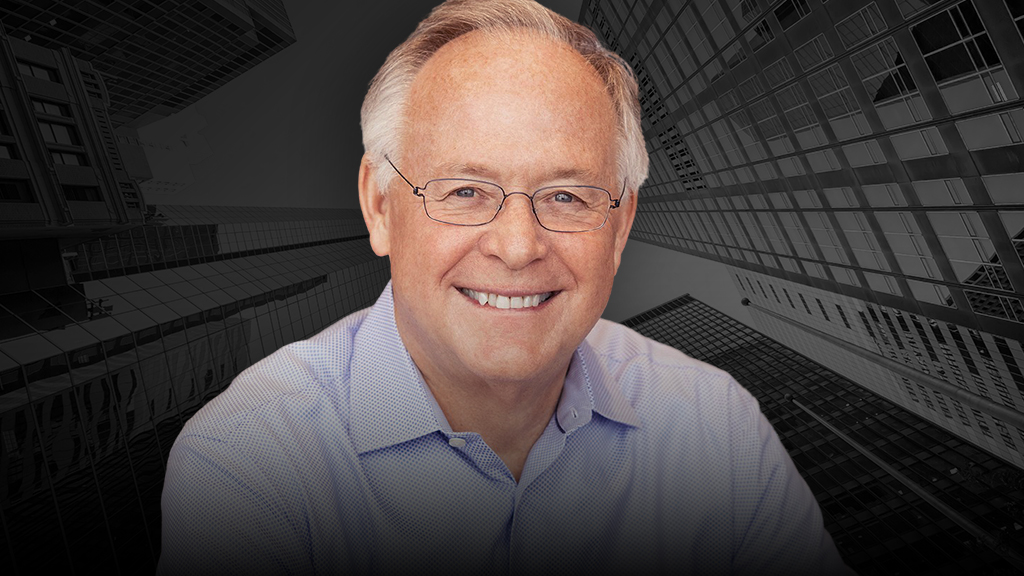Joe Davis
Managing Director & Senior Partner, Boston Consulting Group
Joe Davis of Boston Consulting Group discusses his new book and strategies for creating a culture of collaboration and inclusivity.
Elevate your leadership game with BCG's Joe Davis
Joe Davis is the Managing Director and Senior Partner at the Boston Consulting Group, one of the “Big Three” consulting firms. During his tenure at BCG, Joe has been a pivotal figure in opening the firm’s Washington, DC branch. Joe is the Chair of BCG’s Center for Inclusion and Equity. In addition to his work at BCG, he’s also the author of The Generous Leader: 7 Ways to Give of Yourself for Everyone’s Gain. Throughout our hour-long conversation, we discussed his new book and explored strategies for creating a culture of collaboration and inclusivity.
Authenticity and vulnerability as a leader
Although many leaders feel the need to appear invulnerable and unshakeable, Joe actually believes it’s better to demonstrate the opposite. At the end of the day, no matter who you are, there will be things that worry you or things that you don’t know. Joe believes that being vulnerable and authentic as a leader is important because when you do admit that you don’t know something or that something is a cause for worry, others let their guard down and express what they don’t know or what worries them. This, in turn, fosters clear and open communication, which breaks down walls and helps solve underlying issues.
Why we need leaders who listen
I asked Joe what piece of career advice he would give to a 29-year-old, fresh-faced consultant at BCG. Joe said that the number one piece of career advice he would give to that person is: “Listen, engage, and understand the lived experiences and the background of everyone that you’re working with.” Listening is important as many of the people you’re working with have gained valuable knowledge from their own experiences. In listening to people, you can benefit from the lessons they’ve learned without having to live through the experiences or make the mistakes that they have.
Leveraging modern communication for heart-led leadership
Companies are larger today than they have ever been. Companies such as Amazon and Walmart have millions of employees, making it impossible for their CEOs and leadership teams to have personalized interactions with even just five percent of their workforce.
That said, we are also in a time of technological revolution, making it easier than ever to communicate company messages. It’s important to know that what you say during a recording and what people hear when they watch that recording can be drastically different, so Joe actually recommends that people “friend test” their speeches. This entails practicing your speech with friends or people close to you and having them articulate what they picked up from your speech. This will help ensure that you get the right point across when delivering an e-message.
Want more?
I feel privileged to speak with the brightest minds of our generation, like Joe, every week. To see our list of upcoming guests, subscribe to the Walker Webcast.
At a glance

The Generous Leader: 7 Ways to Give of Yourself for Everyone’s Gain
Lorem ipsum dolor sit amet, consectetur adipiscing elit. Suspendisse varius enim in eros elementum tristique. Duis cursus, mi quis viverra ornare, eros dolor interdum nulla, ut commodo diam libero vitae erat. Aenean faucibus nibh et justo cursus id rutrum lorem imperdiet. Nunc ut sem vitae risus tristique posuere.
Lorem ipsum dolor sit amet, consectetur adipiscing elit. Suspendisse varius enim in eros elementum tristique. Duis cursus, mi quis viverra ornare, eros dolor interdum nulla, ut commodo diam libero vitae erat. Aenean faucibus nibh et justo cursus id rutrum lorem imperdiet. Nunc ut sem vitae risus tristique posuere.
If you want to improve your leadership skills, look no further. Joe’s authenticity is inherent throughout his book which is a great reminder that being a successful leader requires more than just technical skills. A wonderful read for seasoned leaders and young professionals alike.
Related Walker Webcasts
Building a High-Performing Team with Jon Levy
Learn More
February 4, 2026
Leadership
Mastering the Cycles of Leadership with Carolyn Dewar
Learn More
January 7, 2026
Leadership
Shaping the Future of Luxury Living with Jeffrey Soffer
Learn More
December 17, 2025
Leadership
Insights
Check out the latest relevant content from W&D
News & Events
Find out what we're doing by regulary visiting our News & Events pages
